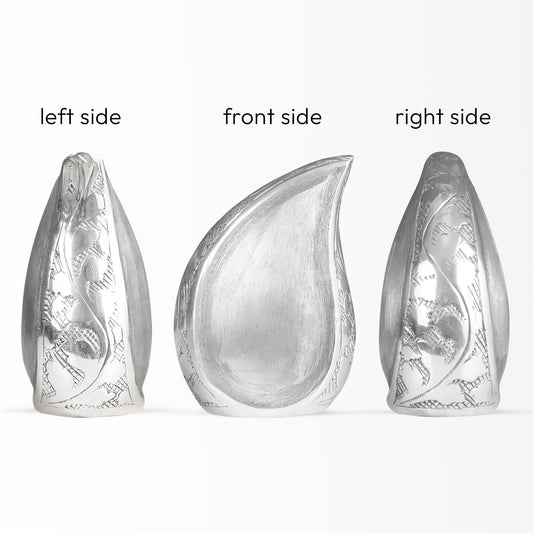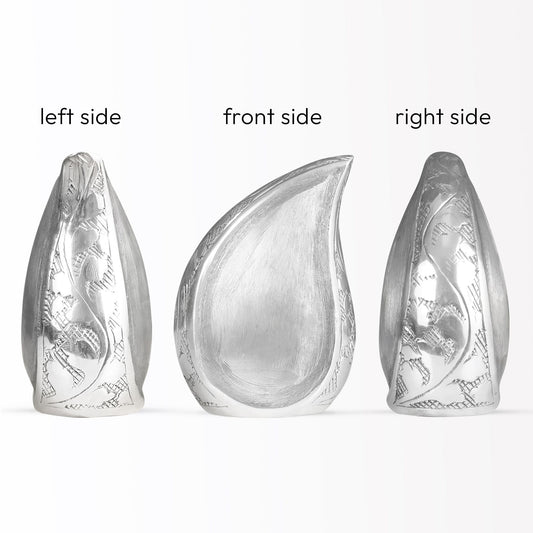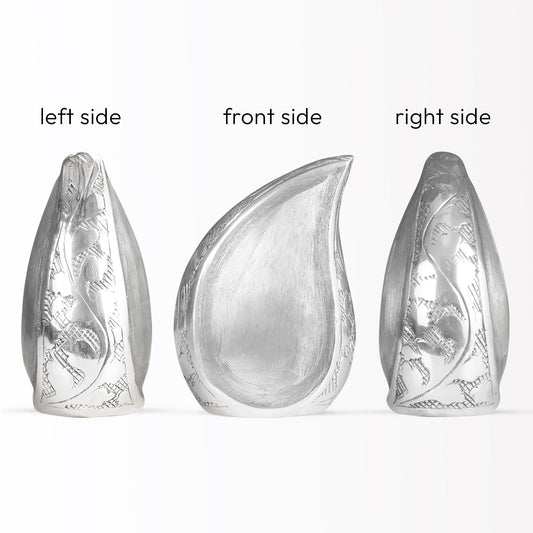Popular Urns
About Cremation Laws in Florida: What's Its Importance and Features?

Increasingly, more Floridians have opted for final disposition through cremation, following the national trend. In light of changing cultural views on death, Florida has developed an all-inclusive legal scheme on cremation.
As a matter of course, such regulations not only safeguard proper respect and handling of remains but also protect consumers as they face one of life's most significant decisions. Families faced with making end-of-life decisions would be best informed about these regulations.
In Florida, prior to cremation, procedures are outlined in the Florida Statutes, Chapter 497, which include, as a basic component, permission authorization.

A signed permission form must be completed by a legal next of kin or an executor of the estate prior to cremation being authorized. This form is both a legal document and a way of ensuring that the wishes, if any, of the deceased are carried out. The body of the deceased also needs to be identified correctly. This entails transportation to a verification using an official identification-type document, such as a driver's license or similar identification.
Another facet of Florida's law on cremation is the waiting period that must be observed. At least 24 hours must have elapsed since death occurred before any remains can be cremated unless waived by a medical examiner.
This provision will give families some breathing time to grieve and more time to process things with their heads instead of just their grief. It seems as though death happens in an emotional manner, therefore the laws are considering giving them some extra time to grieve.

The cremation laws in Florida are basically consumer protection beyond their legality and regulation. Such laws ensure that funeral homes and crematories act with honest and transparent practices, therefore shielding families from exploitation. With Florida law, it was made possible for a licensed crematory to work within strict standards; thus, the oversight assures families that the loved ones get treated with dignity in the conduct of the cremation process.
More importantly, the cremation laws in Florida can mean meaningful memorialization. Due to the options given by cremation, the family is thus allowed to create a number of ways to honor their loved one.
These range from traditional ceremonies to personal memorials and even onto the scattered remains, as the laws cater to the creativity of families in coming up with a unique send-off that symbolized the life and values of the individual. This personalization is quite essential in the grieving process as it helps families to find ways to honor their loved ones in ways that speak to them so profoundly.
-
Some of the important characteristics of Florida's cremation laws include:
Emphasis on maintaining a chain of custody for the remains. This regulation ensures that the body of the deceased is well traced, from the moment of death to the time when the body is cremated, which is critical not only for accountability but also for peace of mind of relatives.

The laws further guide conflict resolutions in case of disagreements on who to give permission to authorize cremation. In cases where family members disagree, there are avenues of the law that can be taken to resolve these conflicts, thus alleviating much emotional stress at an already stressful period of time.
Finally, Florida law gives choices to families as regards the last ritual with their deceased family members in case they opt for cremation; these choices are whether to keep, scatter, or bury ashes.
But there are also guidelines issued to ensure that this process is done responsibly and within the law. The Florida law stipulates that if there are no family members to take up a body, then the body can be cremated anyway, thus giving persons without any support system equal dignity while still alive or even after death.
In a nutshell, therefore, it is where the laws on cremation in Florida come in to provide a key framework through which families would find their way forward while arranging end-of-life treatments.
As these laws ensure that ethical practice is coupled with consumer rights protection, they help a family deal with situations during their time of bereavement in respectable and meaningful ways. It is thus such an understanding of the regulations that allows people to make informed decisions about cremation and memorialization; this is how loved ones are treated with dignity and care.
ALSO READ:

























































































